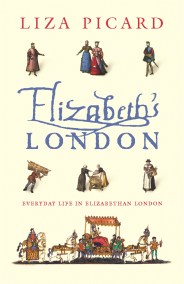‘A Baedeker of the past, absorbing and revealing in equal measure’ Peter Ackroyd
‘Brings the age’s tortuous splendours and profound murkiness vividly to life’ Observer
When Dr Johnson published his great Dictionary in 1755, London was the biggest city in Europe. The opulence of the rich and the comfort of the ‘middling’ sort contrasted sharply with the back-breaking labour and pitiful wages of the poor. Executions were rated one of the best amusements, but there was bullock-hunting and cock-fighting too. Crime, from pickpockets to highwaymen, was rife, prisons were poisonous and law-enforcement rudimentary.
Dr Johnson’s London is the result of the author’s passionate interest in the practical details of the everyday life of our ancestors: the streets, houses and gardens; cooking, housework, laundry and shopping; clothes and cosmetics; medicine, sex, hobbies, education and etiquette. The book spans the years 1740 to 1770, starting when the gin craze was gaining ground and ending when the east coast of America was still British. While brilliantly recording the strangeness and individuality of the past, Dr Johnson’s London continually reminds us of parallels with the present day.
‘Brings the age’s tortuous splendours and profound murkiness vividly to life’ Observer
When Dr Johnson published his great Dictionary in 1755, London was the biggest city in Europe. The opulence of the rich and the comfort of the ‘middling’ sort contrasted sharply with the back-breaking labour and pitiful wages of the poor. Executions were rated one of the best amusements, but there was bullock-hunting and cock-fighting too. Crime, from pickpockets to highwaymen, was rife, prisons were poisonous and law-enforcement rudimentary.
Dr Johnson’s London is the result of the author’s passionate interest in the practical details of the everyday life of our ancestors: the streets, houses and gardens; cooking, housework, laundry and shopping; clothes and cosmetics; medicine, sex, hobbies, education and etiquette. The book spans the years 1740 to 1770, starting when the gin craze was gaining ground and ending when the east coast of America was still British. While brilliantly recording the strangeness and individuality of the past, Dr Johnson’s London continually reminds us of parallels with the present day.
Newsletter Signup
By clicking ‘Sign Up,’ I acknowledge that I have read and agree to Hachette Book Group’s Privacy Policy and Terms of Use
Reviews
In this new survey of Johnson's London, which spans the years 1740 to 1770, Liza Picard reveals what it was that proved so compelling about the monstrous metropolis ... With her keen eye for human quirks and human weakness, Picard brings the age's tortuous splendours and profound murkiness vividly to life, and does so with great verve and originality
This book sweeps across the London of 1740 to 1770 like a flying magnifying glass. [Picard's] dry humour and eagle eye make her a superb guide. It opens with a sedan chair tour around George II's London and along the river. I can only say it is brilliant
There are fascinating disquisitions on do-it-yourself decorating, on male and female underwear, on funerals, and on the language of fans ... Dr Johnson's London is a Baedeker of the past ... It is absorbing and revealing in equal measure
Read Liza Picard's book, wrap yourself in the atmosphere of the past, and you'll emerge with a gulp of relief to be living now, not then
This wonderful book drops us right in the noisy, dirty, dung-ridden heart of mid-eighteenth-century London ... Picard's street-level approach builds up a compelling, all-encompassing picture of how Londoners, from commoners to kings, lived and died
At last, a riveting history book with no wars, few dates and minimal references to the King ... Picard has an unerring eye for picking out the most vivid phrase, the most apt memory or pithiest description from the wealth of contemporary information that exists
Picard's exploration of life in the mid-eighteenth century succeeds in being both accessible and vivid. Her curiosity and enthusiasm are infectious, and she has an instinct for what will interest the lay reader




